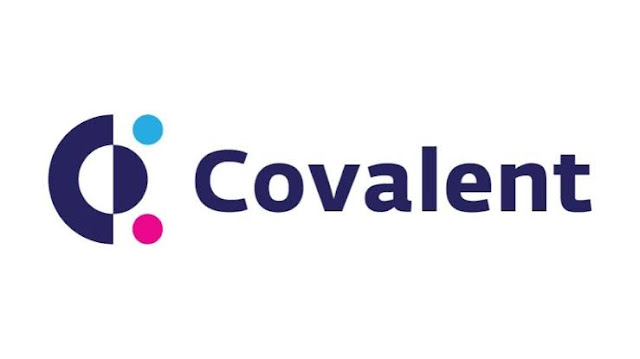Covalent (CQT)
What Is Covalent (CQT)?
Covalent leverages big-data technologies to create meaning from hundreds of billions of data points, delivering actionable insights to investors and allowing developers to allocate resources to higher-utility goals within their organization.
Instead of painstakingly sourcing data from a small handful of chains, Covalent aggregates information from across dozens of sources including nodes, chains and data feeds. The Covalent API then sources end-users with individualized data by wallet, including current and historical investment performance across all types of digital assets. Most importantly, Covalent returns this data in a rapid and consistent manner, incorporating all relevant data within one API interface.
Having achieved product-market fit, we are now planning to execute the next phase of Covalent, which is a progressive decentralization that will enable the Covalent Network to be owned and operated by its users. Of course, a critical piece to this is CQT.
- CQT is the native token of the Covalent Network. It has three primary purposes:
- CQT is a governance token, whereby token holders vote on proposals to change the system parameters.
- CQT is a staking asset. Validators will earn fees for answering queries.
- CQT is a network access token that fulfills data queries for users of the API.
Covalent Use Cases
The bulk of the use-cases are as-of-yet unknown, and we are constantly surprised at the multitude of ways developers and our partners use the data.
- Taxes: Every single DeFi action is a taxable event and having access to this data helps firms be compliant. If a trader uses Coinbase, they can quickly download a CSV of their trade data - besides Covalent, there is no such thing for a decentralized exchange like Uniswap or 1inch.
- DeFi: DeFi protocols, such 0x and Zerion to name a few, use the Covalent API to pull real-time, granular blockchain data. What makes the Covalent API such a critical infrastructure piece for these projects is that not only can they pull wallet specific data, but they expand their service to display data across multiple chains. This significantly enhances their product offering and fundamentally improves the user experience. In the case of Zerion, the exact data the DeFi investment dashboard is pulling ranges across multiple chains including Polygon, BSC and Ethereum and includes transactional data, as well a user's token balances, and transaction history.
- NFTs: As the popularity of NFTs has boomed over the past number of months, it has become increasingly important for NFT projects to be able to provide a means of analysis. Given that the Covalent API provides such, Covalent has become the leading NFT data provider. NFT projects such as ChainGuardains and Ethermon are now using the Covalent API to not only power novel features specific to each project, but to again improve the user experience.
- DAOs: Reliable and real-time data are critical in making informed decisions, facilitating governance and allowing individuals to invest, consume, and participate in the DAO phenomenon. It should come as no surprise then that DAOs are using the Covalent API. Individuals can use the API to view and examine proposal interactions so that one can understand how active members are in creating proposals and voting on them as well as if members are voting for, or against proposals in general.
Who Are the Founders of Covalent?
Covalent is built by an experienced team of data scientists and blockchain and database engineers passionate about improving and scaling blockchain technologies. Ganesh Swami, CEO and Co-founder, is a physicist by training and started his career designing algorithms for cancer drugs in the pharmaceutical space. His first company is listed on the NYSE. Levi Aul, CTO and Co-founder, built one of the first Bitcoin exchanges in Canada and was part of the team that built CouchDB at IBM.
How Does Covalent Work?
The Covalent software can be used to index the entire history of blockchains, including every smart contract, wallet address, transaction and more.
This indexed data, regardless of its blockchain source, is normalized into the same format, which Covalent calls ‘block-specimens.’
Covalent enables users to query data from various blockchains through one unified API.
In order to deliver greater access to blockchain data, various roles are needed for data retrieval, storage, and query processes:
Validators ensure data integrity and accuracy as well as honest participant behavior. In order to become a validator, a user must stake CQT tokens and, if they act maliciously, their staked tokens can be slashed.
Block-Specimen Producers compete to gather timely and accurate data from the various blockchains Covalent aggregates by running a node on those chains. Once blockchain data has been collected, Block-Specimen Producers publish the data to a storage node (which they can also run) and receive a CQT reward.
Indexers race to produce and publish results to the Covalent network. Their job is to fetch the data, check the data for accuracy and publish these results to the storage network.
Storage-Request Responders fetch the data requested by Covalent’s end users, wrap the signed request, and submit this information to the Covalent chain. Storage-request responders work directly with other nodes, allowing them to compare prices and capabilities offered by other network participants.
Query Request Responders fulfill a similar role to storage-request responders on the Covalent blockchain, but rather than utilizing existing internal data maintained on the chain, query nodes mostly handle external requests submitted from Covalent’s API.
Directory Service Nodes help Covalent customers find the ideal nodes that match the specific resource and capabilities that they require, at their given price point for a specific data request.
Tags:
Cryptocurrency
